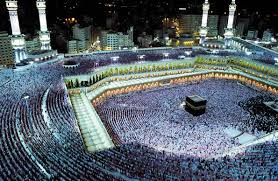As preparations for the 2025 Hajj intensify across the globe, South African pilgrims are poised to emerge as a major force among international worshippers expected to converge in the holy cities of Makkah and Madinah. Reports monitored by KIIN360 reveal that the South African Hajj and Umrah Council (SAHUC) has begun comprehensive arrangements to ensure that pilgrims from the Rainbow Nation uphold their tradition of excellence, discipline, and orderliness during the sacred exercise.
The Kingdom of Saudi Arabia, through its Ministry of Hajj and Umrah, had earlier disclosed that the upcoming pilgrimage will witness an expanded scale of operations, with improved services aimed at enhancing the spiritual experience for millions of Muslims worldwide. Officials in Riyadh noted that logistical innovations, including faster transportation systems, advanced crowd management techniques, and better healthcare provisions, have been introduced ahead of the 2025 rites.
South Africa, often celebrated for its well-organised Hajj missions, is once again drawing international admiration. Saudi authorities, according to multiple reports, have consistently praised South African pilgrims for their strict compliance with Hajj guidelines, early preparedness, and cooperative spirit during previous pilgrimages. It is no surprise, therefore, that expectations are high for the country to lead by example as Muslims from all corners of the earth assemble for the fifth pillar of Islam.
Registration for the 2025 pilgrimage commenced in earnest earlier this year, with South African authorities confirming a higher quota allocation in line with Saudi Arabia’s post-COVID-19 Hajj expansion policy. Pilgrims are already undergoing rigorous orientation programmes aimed at deepening their understanding of the spiritual, physical, and procedural demands of the Hajj. The South African Hajj and Umrah Council has reiterated its commitment to upholding the highest standards, emphasizing that all pilgrims under its care will be meticulously prepared for the sacred journey.
Meanwhile, Saudi Arabia has intensified infrastructural upgrades around the holy sites, particularly the Grand Mosque in Makkah and the Prophet’s Mosque in Madinah, in a bid to accommodate the swelling number of faithful expected next year. These developments come against the backdrop of the country’s Vision 2030 agenda, which seeks to boost religious tourism as part of its wider economic diversification efforts.
As the countdown to Hajj 2025 continues, there is growing optimism that the South African contingent will not only uphold their reputation for discipline but also set a benchmark for pilgrims from other nations. With global Muslim communities looking forward to a spiritually fulfilling and logistically smooth pilgrimage, South Africa’s readiness stands as a shining testament to what early planning, respect for regulations, and sincere devotion can achieve.
